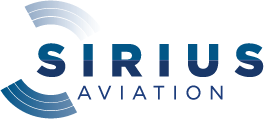EVALUATION PROGRAMMES
SUPPLIER EVALUATION PROGRAMMES
With the current aviation industry trend toward outsourcing services and personnel, it is essential that third-party service providers be regularly assessed to determine their ability to meet both regulatory requirements and client expectations. Sirius Aviation has significant external auditing knowledge in assessing:
• The Experience & Qualifications of Contracted Personnel
• The Quality & Content of Contractor Policies & Procedures
• The Effectiveness of Training Programmes
• The Management Oversight & Supervision
An effective Compliance monitoring and Assurance program helps our clients to consistently exceed internal and external customer expectations, to continually reduce the number of process and product defects and to minimise the variability of system performance levels. Implementation also reduces:
• Regulatory Compliance Violations
• Operational Incidents & Irregularities
• Operational Inefficiency
INTERNAL EVALUATION PROGRAMMES
- An IEP is a high level voluntary programme that provides the certificate holder with a means to maintain and refine the management system by continually monitoring the effectiveness and efficiency of processes and systems.
- An IEP is a fundamental element to ensure compliance with;
- External regulatory requirements
- Identify nonconformance to internal company policies and procedures
- Identify opportunities to improve organizational policies, procedures, and processes
- Within the international aviation community, the IEP is also synonymous with the quality assurance function
- Internal evaluations involve assessment of the service provider‘s aviation activities that can provide information useful to the organisation’s decision making processes
- The internal evaluation function includes evaluation of safety management functions, policy making, safety risk management, safety assurance and safety promotion throughout the organisation
- An effective IEP should include the following fundamental elements:
- Systems-Oriented Process. Internal evaluation should be a continual process that incorporates the techniques of inspections, audits, and evaluations to assess the adequacy of managerial controls and processes in critical systems and to continuously improve those systems based upon the results of regular evaluations. It should also include continuous monitoring and feedback of information on critical processes, and regular trend analysis of resulting data.
- Beyond Regulatory Compliance. Internal evaluations should extend beyond regulatory compliance to determine the causes of deficiencies and detect and implement needed enhancements to company operating practices before deficiencies occur.
- It is here where the key activity of SMS – hazard identification and risk mitigation (HIRM) takes place
- Evaluations conducted for the purpose of this requirement must be conducted by persons or organisations that are functionally independent of the technical processes being evaluates
